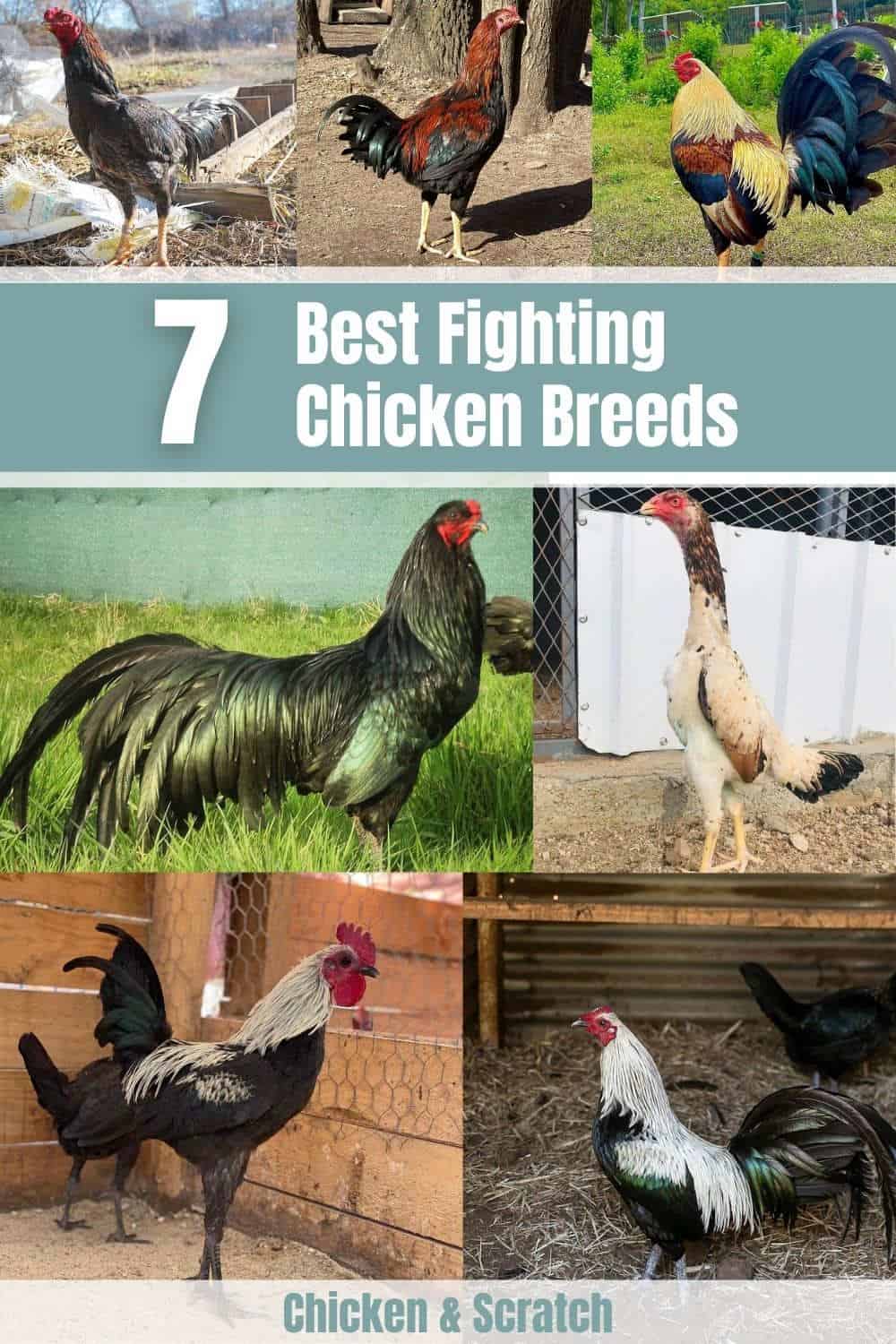Do Hens Fight? While it is not common, chickens can sometimes fight with each other. Knowing what causes hens to fight and how to prevent it is important for anyone involved in chicken husbandry. In this article, we will discuss the causes of fighting among hens and what you can do to prevent it.
What Causes Hens to Fight?
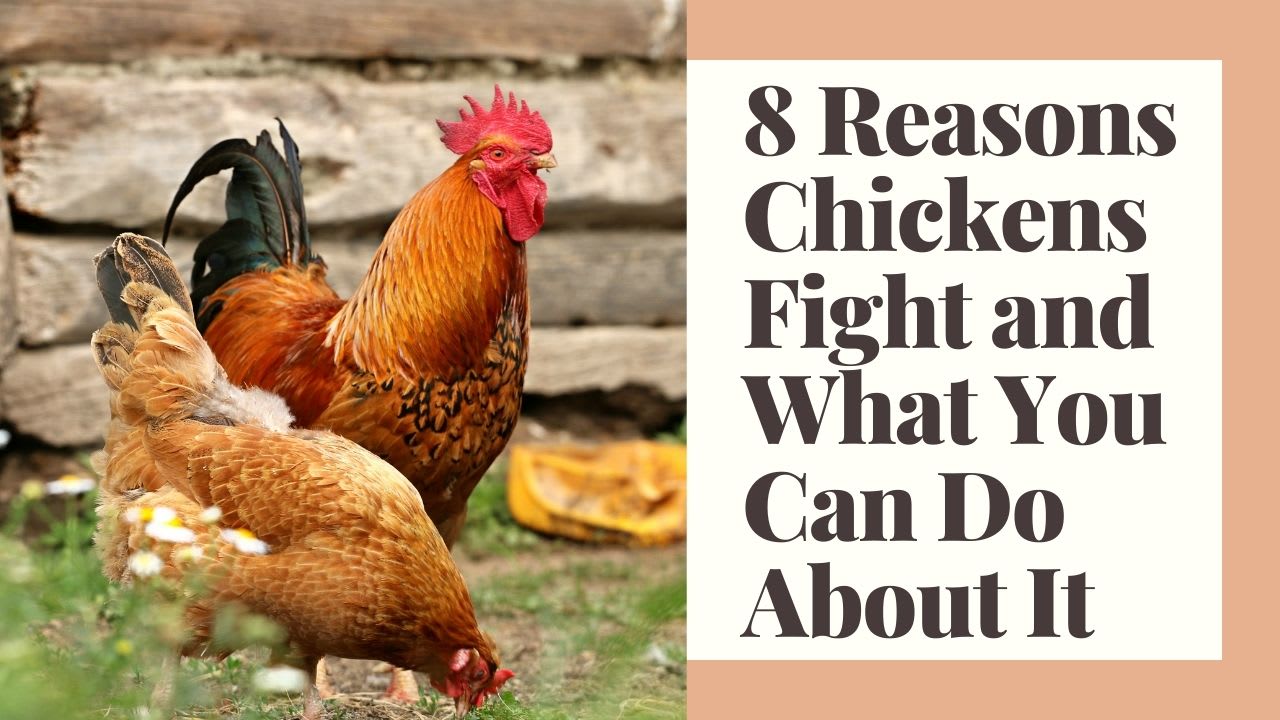
Hens are not as aggressive as roosters and do not fight in the same way, but they can still be territorial and can fight over resources like food, nesting boxes, and perches. When the flock size is too large, the hens can become overcrowded and create competition for resources, which can lead to increased fighting. Hens may also fight to establish a pecking order, which is a natural part of chicken behaviour.
The intensity of the fighting can range from minor pecking and feather plucking to more serious physical harm. If one or more hens are not getting enough food, water, or shelter, it can lead to increased aggression and fighting. Hens may also fight if they feel threatened, such as when a new chicken is introduced to the flock.
| Factor | Causes Hens to Fight |
|---|---|
| Competition for Resources | Competition for food, nesting boxes and perches when the flock size is too large. |
| Establishing a Pecking Order | Natural part of chicken behaviour. |
| Insufficient Resources | Not enough food, water, or shelter can lead to increased aggression and fighting. |
| Threats | Hens may fight when feeling threatened, such as when a new chicken is introduced to the flock. |
It is important to monitor the flock for any signs of aggression or fighting, and address any potential issues before they escalate. If the fighting persists, it may be necessary to separate the hens or remove the aggressor from the flock. While hens do not fight in the same way as roosters, they can still be territorial and aggressive. With proper husbandry and a safe, comfortable environment, the chances of fighting can be greatly reduced.
Signs of Hens Fighting
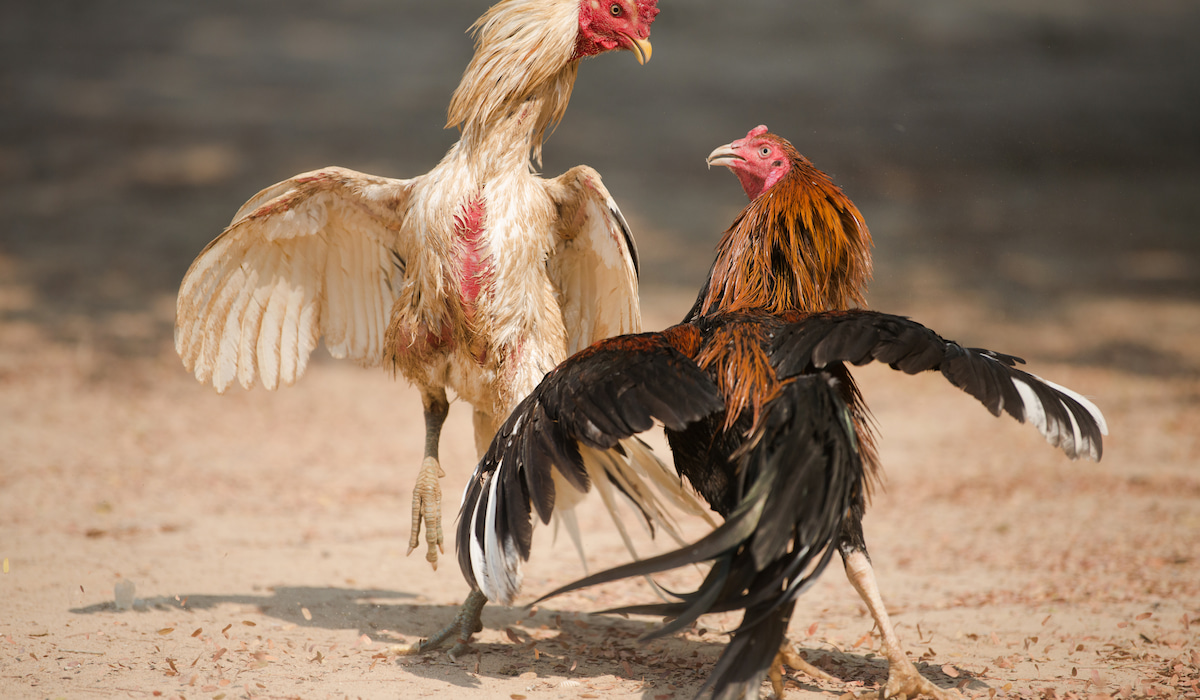
Hens fighting can be very disruptive to the flock and can result in serious injuries or even death. It is important to recognize the signs of hens fighting so that you can take steps to prevent it from happening.
Physical Signs:
| Signs | Description |
|---|---|
| Feather Loss | You may notice patches of missing feathers on the hens, which can indicate that they have been in a fight. |
| Scratches and Bites | Look for scratches or bite marks on the hens’ skin, which could indicate they have been in a fight. |
| Blood | If you notice blood on the hens, it could be a sign that they have been in a fight. |
Behavioral Signs:
| Signs | Description |
|---|---|
| Aggression | If two hens seem to be squaring up to each other and displaying aggressive behavior, it could be a sign that they are about to fight. |
| Pecking | Pecking can be a sign of dominance or aggression and can often lead to hens fighting. |
| Posturing | Hens may display posturing behavior, such as puffing up their feathers and standing tall, which can indicate they are about to fight. |
If you notice any of these signs of hens fighting, it is important to take steps to separate them and prevent further fighting. Allowing hens to fight can cause serious harm or even death and should be avoided at all costs.
Prevention of Hens Fighting

Provide Adequate Space
To prevent hens from fighting, it is important to ensure that there is enough space for them to move around and spread out. Ideally, you should provide a minimum of 4 to 5 square feet of floor space per chicken.
Avoid Crowding
In addition to providing adequate space, it is important to avoid overcrowding. When chickens are overcrowded, they become stressed and territorial, which can lead to fighting.
Offer Separate Feeders and Water Sources
When chickens are competing for food and water, it can lead to fighting. To prevent this, provide separate feeders and water sources for each chicken. This will also help to reduce waste.
Provide Regular Exercise and Stimulation
Finally, it is important to provide regular exercise and stimulation for your chickens. This can help to reduce boredom and prevent them from becoming aggressive. Provide them with access to the outdoors, toys, and other enrichment activities.
Benefits of Hens Fighting
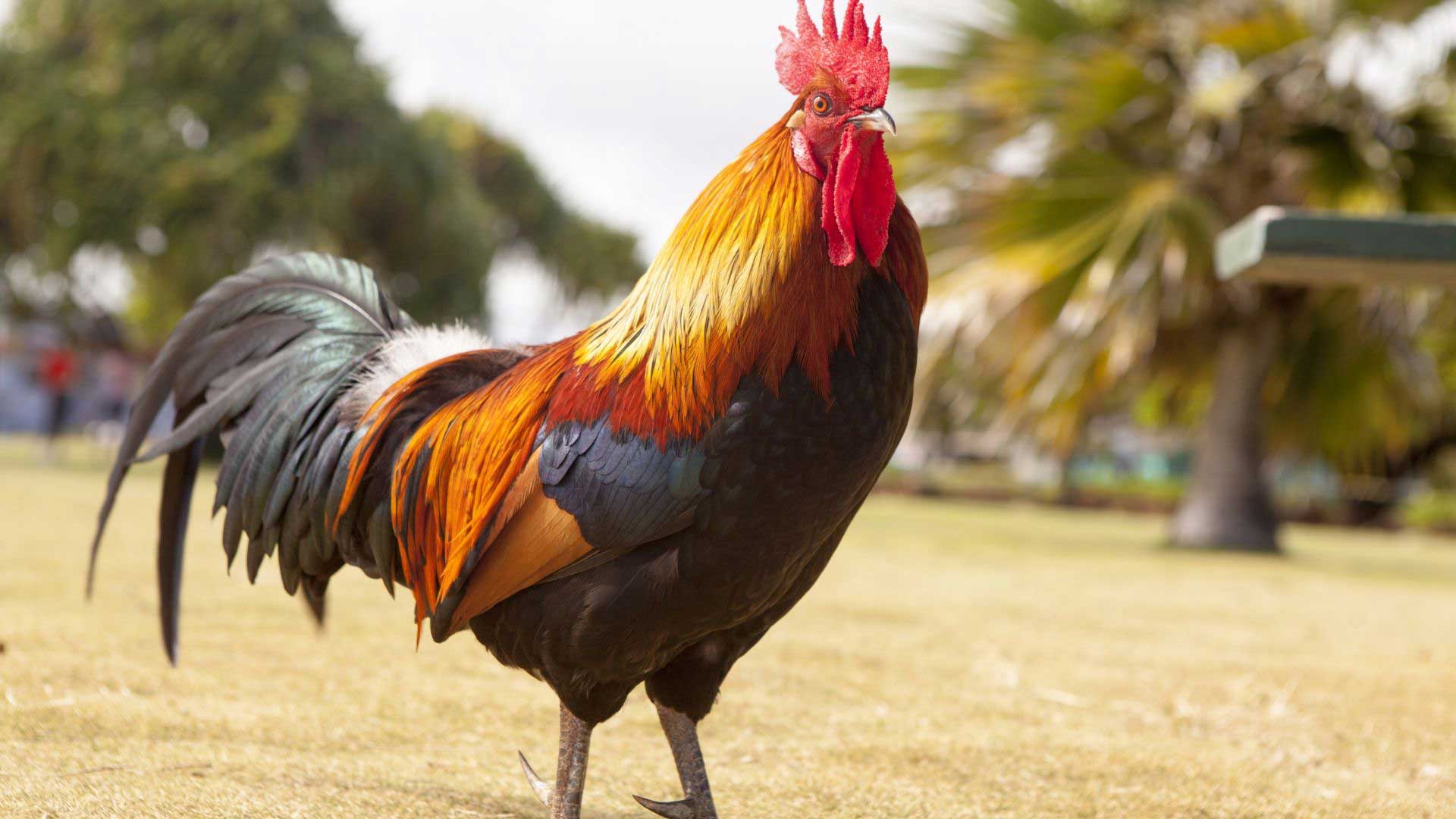
- Healthy Exercise: Hens fighting can provide the birds with exercise and help them stay healthy and in good condition.
- Relieving Stress: Fighting can help relieve stress in the birds and allow them to live comfortably without fear of attack.
- Social Interaction: Hens fighting can provide an opportunity for social interaction among the birds, helping them form strong bonds.
- Improve Breeding Results: Fighting can help to improve the quality of breeding stock, as the birds can be tested for agility, strength, and endurance.
When to Intervene in Hen Fights
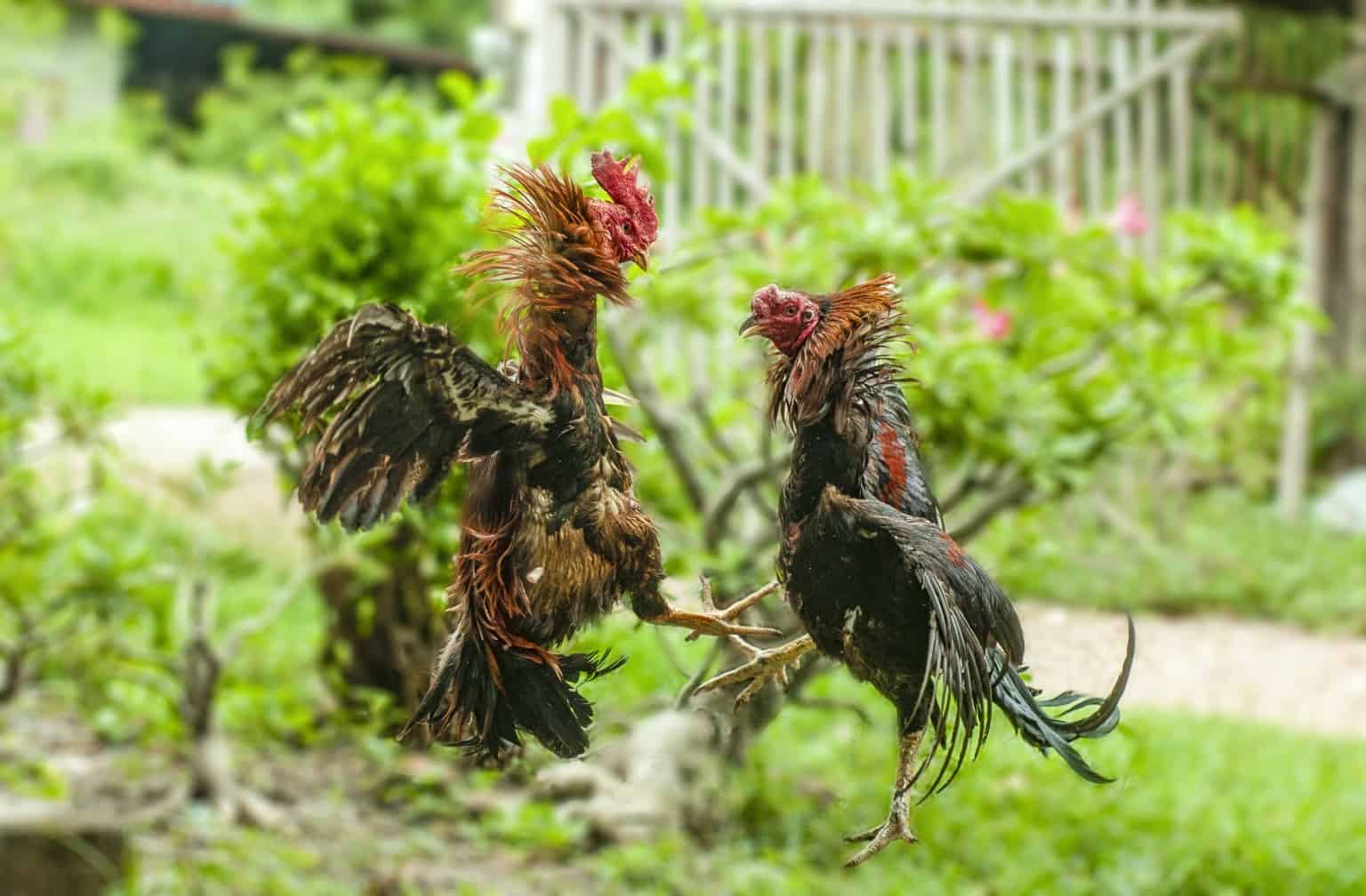
- Recognize the Signs: Look out for signs of aggression between hens, such as tail and wing-flapping, head-bobbing, and loud squawking.
- Understand Territorial Disputes: Hens may fight over food, nesting spaces, and other resources. If there is a limited amount of resources, it can lead to conflict.
- Be Present: Observe the hens closely and intervene quickly if necessary. If possible, try to separate the hens, or distract them with another activity, such as providing fresh food or new perches.
- Identify the Aggressor: If a particular hen is consistently aggressive, it may be necessary to remove her from the flock.
- Monitor for Injury: If the hens are fighting for a prolonged period of time, it is important to monitor for any injuries. Injuries can range from minor cuts and scrapes to serious damage to the eyes or other organs.
- Prevent Future Fights: Once the hens have been separated, it is important to identify the cause of the fight and take steps to prevent it from happening again. Provide an abundance of resources and space, and make sure that the hens have adequate exercise and socialization.
Treating Injuries from Hen Fights

- Protect the birds: To prevent injury, separate the fighting birds immediately. If they are in a flock, they can be separated by keeping them apart in different enclosures. If they are in a small group, they can be separated by putting them in separate cages.
- Treat wounds: Injuries resulting from hen fights can range from minor cuts and scrapes to deep wounds and broken bones. Clean and disinfect any wounds with an antiseptic and apply an antibiotic ointment or spray. If the wound is severe, have a veterinarian treat the bird.
- Provide vitamin supplements: Injuries and stress from fighting can deplete a bird’s vitamin and mineral reserves. Provide a vitamin and mineral supplement to ensure the bird has a full range of essential nutrients.
- Provide extra food and water: An injured or stressed bird needs additional food and water to help them heal. Provide a balanced diet that includes plenty of fresh fruits, vegetables, and grains. Offer extra water to ensure the bird stays hydrated.
- Monitor the birds: Monitor the birds to make sure they are not fighting and to ensure they are healing properly. If they are not healing, consult a veterinarian.
Breeding Hereditary Aggression Out of Hens
- Selective Breeding: Hereditary aggression in hens can be minimized through selective breeding. Farmers can select for breeds that are less aggressive and cull birds that demonstrate aggressive behavior.
- Environmental Stimuli: Environmental factors such as overcrowding, inadequate nutrition, and inadequate shelter can cause hens to become aggressive, so providing the right environment is essential.
- Socialization: Socialization plays a key role in reducing aggression. Providing hens with plenty of space to avoid overcrowding and introducing new birds to a flock gradually can help reduce aggression.
- Neutering: Neutering cockerels can also reduce aggression in hens by reducing the amount of testosterone in the flock. Neutering cockerels is a simple and effective way to reduce aggression in hens.
Hereditary aggression in hens can be minimized by employing the right husbandry practices. Selecting for breeds that are less aggressive and providing a safe and comfortable environment for hens is essential. Socializing hens and neutering cockerels can also help to reduce aggression in hens.
Frequently Asked Questions
Do Hens Need a Rooster to Fight?
No, hens do not need a rooster to fight. Female chickens, or hens, can fight just as fiercely as roosters. In fact, hens are often more aggressive than roosters in defending their territory. Hens may also fight over food, mates, and nesting sites. To avoid fights, it is important to ensure that each chicken has enough space and resources to meet its needs.
How can I tell if my chickens are fighting?
Chickens fighting can be identified by their aggressive behavior, such as flapping wings, pecking, chasing, and crowing. Chickens may also become territorial and display aggression when another chicken approaches their food or nesting area. If chickens are fighting, it is important to separate them and provide adequate space for them to coexist. If the fighting continues, it is best to separate the chickens completely or introduce a distraction, such as a treat, to help break up the fight.
What is the Best Way to Prevent Fighting amongst My Chickens?
Providing ample space, providing separate feeders and waterers, and avoiding overcrowding are the best ways to prevent fighting amongst chickens. When chickens feel territorial, they will fight. Providing plenty of space with separate feeders and waterers will help keep the chickens from crowding and fighting. Overcrowding will also lead to fighting, so be sure to provide enough space for all of your chickens.
Are Chickens Aggressive by Nature?
- Yes, chickens can be aggressive by nature, especially when they are in a flock.
- This aggression is exhibited in the form of pecking, chasing, and other physical fights.
- It is important to understand the natural behavior of chickens in order to be able to recognize and manage aggressive behavior in the flock.
- The most common reasons for chickens to become aggressive include competition for food and territory, stress, and lack of proper socialization.
- Aggressive behavior can be managed by providing adequate space, proper nutrition, and proper socialization.
- If aggressive behavior does not improve, it is important to consult a vet for advice on how to best manage the behavior.
Are there any behavioral signs I should look out for to identify a hen that is likely to fight?
Hens may exhibit certain behaviors that can indicate they are likely to fight. These include: aggressive body language such as head-shaking; chasing or lunging at other chickens; pecking other chickens; and mounting behavior. Hens that are constantly on the move or exhibit territorial behavior towards other chickens may also be more likely to fight. It is important to keep a close eye on individual birds and watch for any changes in behavior that could indicate aggression.
If a hen does become aggressive and starts to fight, it is important to intervene to stop the behavior and separate the birds.
Conclusion
Hens are generally peaceful birds, but they can become aggressive under certain conditions. It is important for poultry farmers and backyard chicken owners to understand the conditions that may cause hens to fight and to take appropriate steps to prevent such behavior. This includes careful attention to the husbandry practices, such as providing adequate space, an appropriate diet, and a secure environment. With the right management, hens can live together in harmony.
